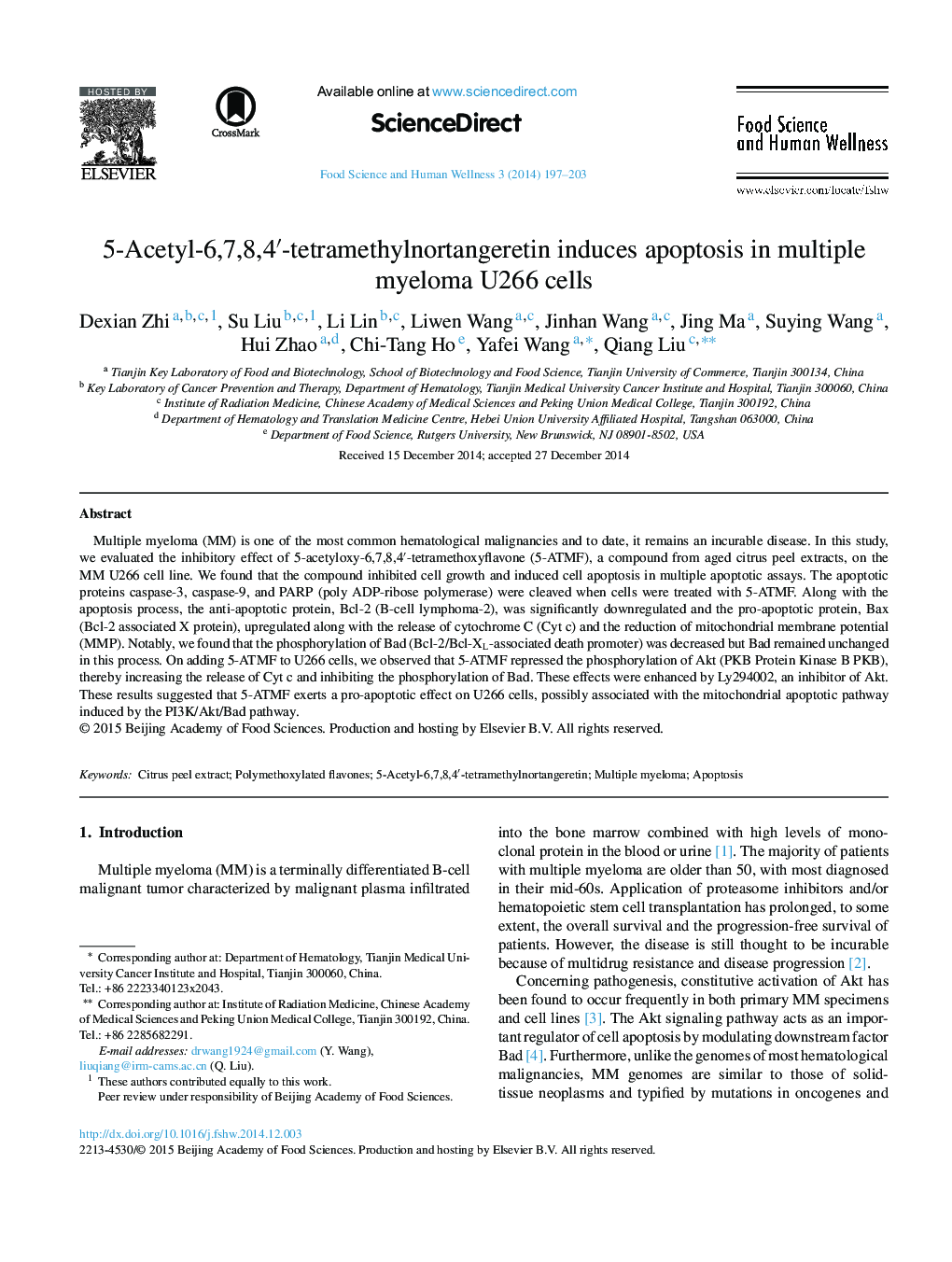| Article ID | Journal | Published Year | Pages | File Type |
|---|---|---|---|---|
| 2688457 | Food Science and Human Wellness | 2014 | 7 Pages |
Multiple myeloma (MM) is one of the most common hematological malignancies and to date, it remains an incurable disease. In this study, we evaluated the inhibitory effect of 5-acetyloxy-6,7,8,4′-tetramethoxyflavone (5-ATMF), a compound from aged citrus peel extracts, on the MM U266 cell line. We found that the compound inhibited cell growth and induced cell apoptosis in multiple apoptotic assays. The apoptotic proteins caspase-3, caspase-9, and PARP (poly ADP-ribose polymerase) were cleaved when cells were treated with 5-ATMF. Along with the apoptosis process, the anti-apoptotic protein, Bcl-2 (B-cell lymphoma-2), was significantly downregulated and the pro-apoptotic protein, Bax (Bcl-2 associated X protein), upregulated along with the release of cytochrome C (Cyt c) and the reduction of mitochondrial membrane potential (MMP). Notably, we found that the phosphorylation of Bad (Bcl-2/Bcl-XL-associated death promoter) was decreased but Bad remained unchanged in this process. On adding 5-ATMF to U266 cells, we observed that 5-ATMF repressed the phosphorylation of Akt (PKB Protein Kinase B PKB), thereby increasing the release of Cyt c and inhibiting the phosphorylation of Bad. These effects were enhanced by Ly294002, an inhibitor of Akt. These results suggested that 5-ATMF exerts a pro-apoptotic effect on U266 cells, possibly associated with the mitochondrial apoptotic pathway induced by the PI3K/Akt/Bad pathway.
